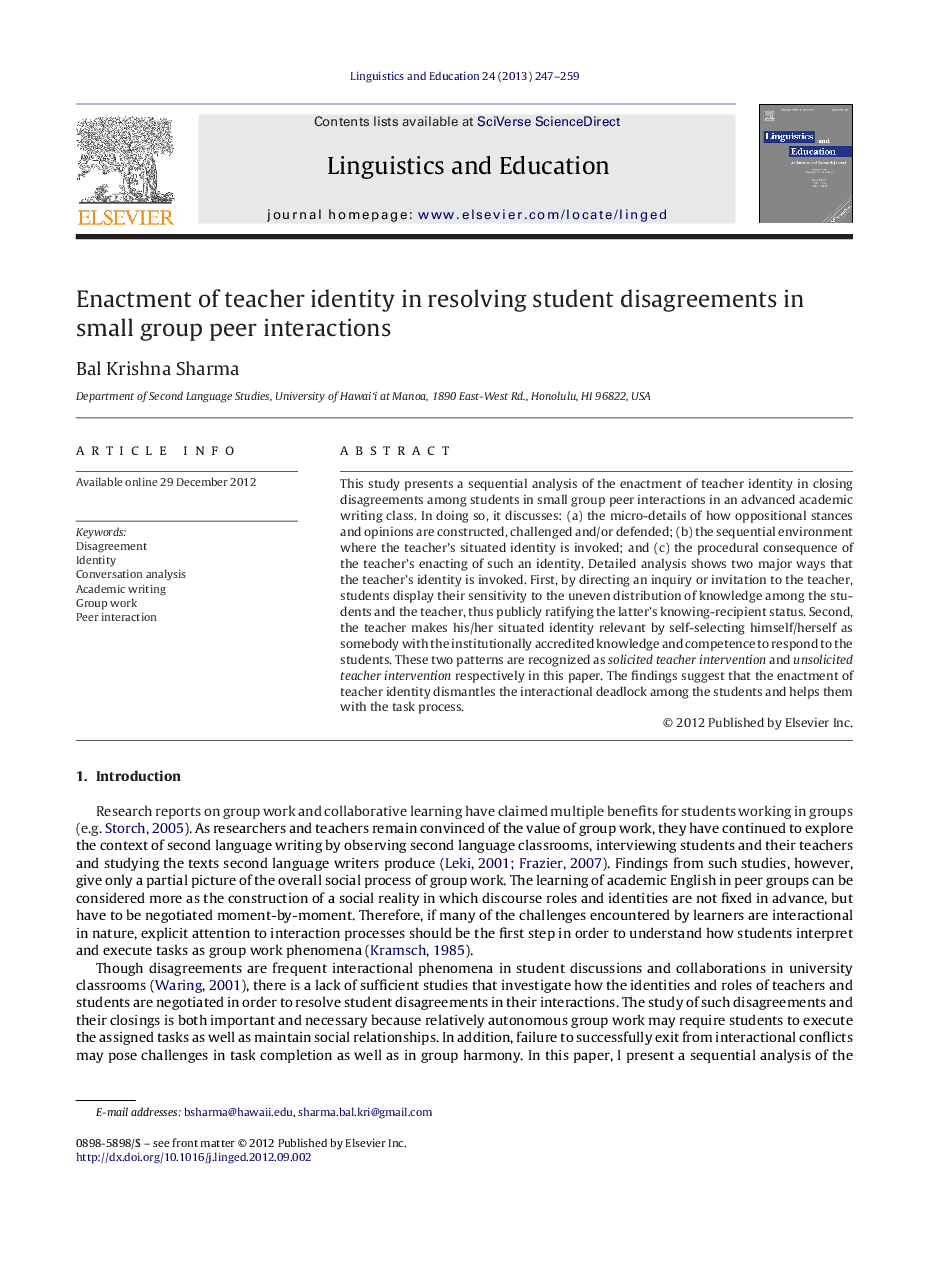| Article ID | Journal | Published Year | Pages | File Type |
|---|---|---|---|---|
| 366218 | Linguistics and Education | 2013 | 13 Pages |
This study presents a sequential analysis of the enactment of teacher identity in closing disagreements among students in small group peer interactions in an advanced academic writing class. In doing so, it discusses: (a) the micro-details of how oppositional stances and opinions are constructed, challenged and/or defended; (b) the sequential environment where the teacher's situated identity is invoked; and (c) the procedural consequence of the teacher's enacting of such an identity. Detailed analysis shows two major ways that the teacher's identity is invoked. First, by directing an inquiry or invitation to the teacher, students display their sensitivity to the uneven distribution of knowledge among the students and the teacher, thus publicly ratifying the latter's knowing-recipient status. Second, the teacher makes his/her situated identity relevant by self-selecting himself/herself as somebody with the institutionally accredited knowledge and competence to respond to the students. These two patterns are recognized as solicited teacher intervention and unsolicited teacher intervention respectively in this paper. The findings suggest that the enactment of teacher identity dismantles the interactional deadlock among the students and helps them with the task process.
► This study presents a sequential analysis of the enactment of teacher identity in closing disagreements among students. ► Two patterns are recognized as solicited teacher intervention and unsolicited teacher intervention respectively in this paper. ► The findings suggest that the enactment of teacher identity dismantles the interactional deadlock among the students and helps them with the task process.
